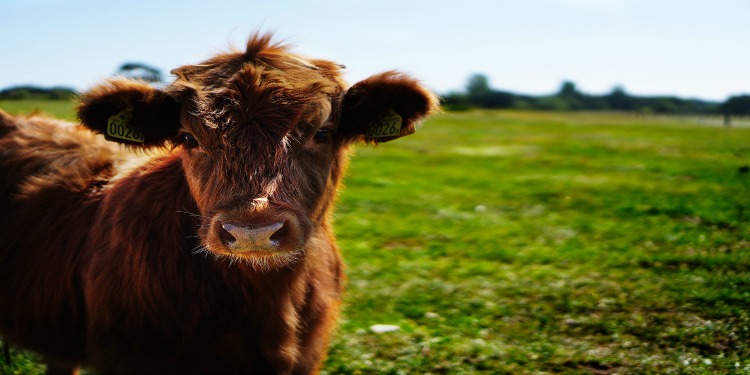God Wants to Give
The Fellowship | August 29, 2018

“When a calf, a lamb or a goat is born, it is to remain with its mother for seven days. From the eighth day on, it will be acceptable as a food offering presented to the LORD.” — Leviticus 22:27
Prayer in Judaism is defined as “the work of the heart,” which profoundly changes the nature of prayer from one of entreating God to an act that transforms who we are – not what God does. Our devotions throughout this month are focused on different facets of prayer and what lessons we can learn about the power of our prayers. For more inspirational teachings about prayer, download our free booklet, The Work of the Heart.
I once was visiting a farm in northern Israel when it happened to be calving season. We got the chance to witness the miracle of new life coming into the world. However, just as natural as the birth of these calves had seemed, what happened afterward seemed anything but natural. The farmers took the calves away immediately after they were born and began to feed them with baby bottles. What I had expected to see was the calves nursing happily from their mothers. After all, isn’t that what happens in nature?
The farmers had an explanation for their protocol. They explained that when a calf nurses from its mother, it forms a deep bond. If the two are separated before the calf is old enough and naturally weaned, the mother cow cries. The farmers explained that they had tried it just once, and when the baby cow was separated from the mother cow, she moaned for days. The moaning was so loud and so sad that it kept everyone up at night. So the standard protocol became to take away the calves at birth, not letting them suckle even once, in order to spare the mother cow any future pain of separation.
In our Bible verses today, the people of Israel were commanded to do the exact opposite. They were not allowed to offer as a sacrifice a newly birthed calf, lamb, or goat, until it had nursed from its mother for at least seven days. On the eighth day, the newborn was permitted to be offered as a sacrifice, and the mother cow would inevitably wail. Was this a senseless cruel practice?
The Jewish sages explain that the cries of the mother were a message for God’s children. There is a saying in the Jewish tradition that “the mother cow needs to give more than the calf wants to take.” That’s why the mother cried and not the calf. The message for us is that as much as we want to receive things from God, God wants even more to give them to us.
Today, prayer has taken the place of sacrificial offerings; however the message of the mother cow is just as relevant. If we pray, and our prayers are not answered in the way that we like, we must understand that it’s not because God doesn’t love us; it’s because He loves us so much that He won’t give us something that is not good for us. God wants to give even more than our desire to receive.
As we pray with that perspective, knowing that God is on our side and wanting to help us out, when the answer is “no,” we can take comfort knowing it’s because God has something even better in mind.
